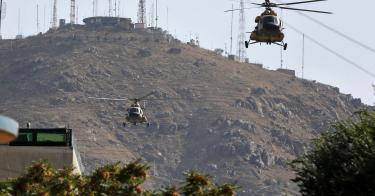From the outside looking in, one might think that Team Trump’s Afghanistan policy is stuck in “neutral” due to promises of an interagency review and follow-on strategy by mid-July.
Fair enough, but it’s far better to get it right than to get it fast.
It’s not as if nothing is happening: Some 8,500 brave U.S. troops are still taking out terrorists and training, advising and assisting the Afghanistan security forces against the Taliban, the Haqqani Network and the Islamic State.
NATO is providing another 6,500 trainers.
In June, NATO also pledged to increase its train-and-equip contribution to the “Resolute Support” mission, especially working on Afghan special operation forces and aviation units.
Plus, just last week the Trump administration decided to withhold up to $350 million in aid to Pakistan due to Islamabad’s failure to address U.S. counterterrorism concerns related to Afghanistan.
(For background, see my June 28 Herald column, “Pakistan key to stabilizing Afghanistan.”)
And also last week, President Trump traveled to the Pentagon to get an update on policy deliberations on an Afghanistan strategy going forward. No final decisions seem to have been made based on that meeting.
But, the United States is still clearly working to prevent Afghanistan from becoming a terrorist safe haven (again), pressuring the Taliban to negotiate and strengthening the Afghans to battle the various insurgencies they face.
That’s all good, but where do we go from here after fighting for nearly 16 years in Afghanistan in a conflict that senior U.S. officials (including Secretary of Defense James Mattis) have said we’re not winning?
Here are a couple of thoughts:
While the war on terror is going well for the moment due to the demise of ISIS in Iraq and Syria — including a big drop this year in ISIS-related plots in the United States over previous years — this isn’t the end of the global violent Islamist extremist movement, as much as we’d like it to be.
(ISIS-related terror plots/attacks in the United States dropped from 14 in 2015 to nine in 2016 to three so far this year.)
Just think about how once down-and-out al-Qaeda in Iraq became ISIS — the world’s largest, most powerful and richest terrorist group that not only held territory in several countries but inspired or directed terror acts abroad.
Afghanistan remains unquestionably an extremist hot spot. Indeed, Army Gen. John Nicholson, U.S. commander in Afghanistan, said that of the nearly 100 U.S.-designated terrorist groups globally, 20 of them are in the Afghanistan-Pakistan region.
Think about that — 20 of nearly 100 terror groups. That’s seriously troubling—and proves that Afghanistan isn’t only a viper pit of violent Islamist extremism, but is a potential breeding ground for other terror groups with global aspirations and reach, too.
As such, the United States and NATO need to play the long game in Afghanistan.
That doesn’t mean nation building — but it does mean having a limited, but robust diplomatic, military and even economic footprint to help build Kabul’s capacity to extinguish the embers of extremism — which could spread beyond Afghanistan.
As the United States has learned from fighting ISIS these last few years in Syria and Iraq — and always mindful of the horrors of the 9/11 attacks on this nation — we need to take these terrorists out over there if we’re going to have security here.
This piece originally appeared in Boston Herald



